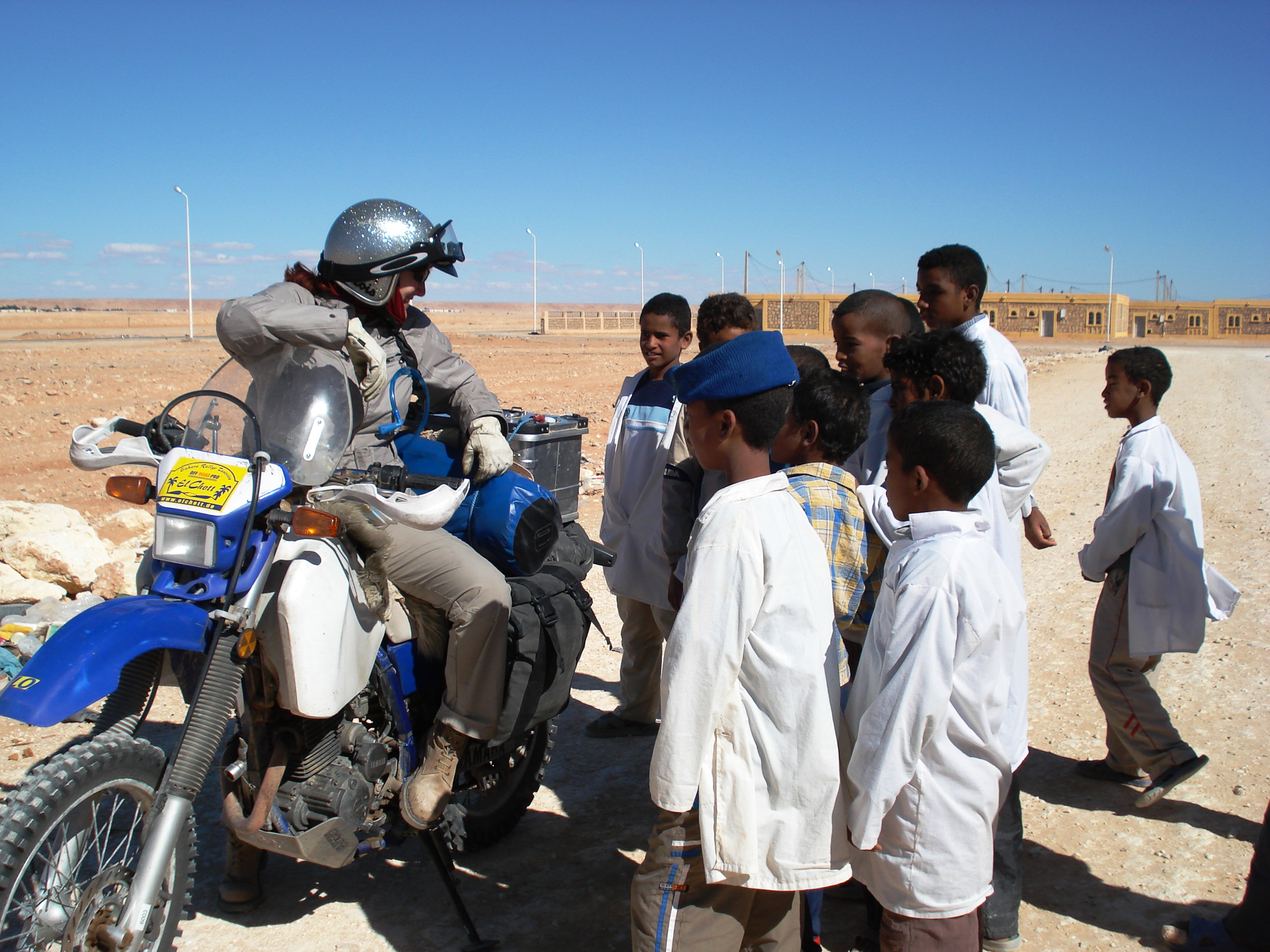Editor’s Note: This article was originally published in Overland Journal’s Spring 2022 Issue.
With her cherry-hued hair, goggle-adorned helmet, and lightweight Yamaha motorbike, you are likely already well-acquainted with this British solo female adventure motorcycle rider, journalist, and author. She praised vulnerable travel in her TEDx Talk, was shortlisted for the Edward Stanford Travel Writing Awards, and has been published in the Telegraph, the New York Times, the Guardian, and the Independent. I am, of course, referring to Living Legend (Spring 2019 issue) Lois Pryce.
While you may have read her books and enjoyed her stories, you might not know that Lois leaped from a project manager role at BBC Music into the world of travel memoir writing. Intrigued by Lois on the Loose, Red Tape and White Knuckles, and Revolutionary Ride, I set out to uncover what exactly happens at Lois’s writing desk and what’s next for this adventure storyteller.

Why writing? How did this transition occur?
I had always enjoyed writing at school and have not stopped reading books since I first learned to read. When I set off on my first long-distance motorcycle trip (Alaska to Argentina in 2003), there was no social media, and blogs didn’t exist as we know them now. My brother is a software engineer and wanted to learn HTML, so he set up a basic website with the plan that I would email my stories and pictures to him, and he would update my website back in the UK.
I suppose it was an early example of a travel blog, but it was made with the purpose of my friends and family following my progress. However, it ended up getting thousands of hits and being shared all over the world—what we would now call going viral. Within a few weeks, I was getting invitations from people far and wide, and it also led to me getting interview requests and being asked to write articles about my journey. My first commission was from the brilliant and now sadly defunct San Francisco motorcycle newspaper, CityBike. I am forever grateful to them.
What does your writing process look like? Take us through the research stage as well.
Well, there’s all the usual procrastination: a bit of tidying, washing up, phone calls, answering a few emails. Then ‘Oh jeez, I’ve got to get on with it.’ Once I’m in the flow, I’m fine, but I always seem to have to go through this bit first. It is crucial that I know what I am writing before I sit down and start, as I don’t get on well with the experimental let’s see what happens approach. I plan and plot things out as much as possible but am always open to the possibility of changing course, much like my approach to an overland journey.
Notes versus tape recorder?
Handwritten notes. Sometimes if I have an idea in the middle of the night, I will text it to myself. But on the whole, it’s good old pen and paper.
What type of environment fuels your creativity? Messy, music, tidy, cup of tea?
Tidy and a cup of tea. It reflects my German and British heritage—a love of order and addiction to tea.
Do you have a writing schedule?
I tend to write best first thing in the morning, and then sometimes I go in for a late-night session, too. The afternoons are hopeless—nothing happens then.
Does your writing focus on theme or storytelling, or both?
My natural inclination is always toward story. I believe that is what we all connect to as human beings: we want to know what happened next. How did it turn out? This is how we make sense of the world. And if you’ve got a good story, you can then use that to communicate themes and facts.
Please share some of your favorite books, writers, and stories.
I mostly read fiction, of all kinds, from classics to contemporary novelists. I also read memoirs, non-fiction, and, of course, travel. For me, it is all about story and character. It doesn’t need to be a big swashbuckling adventure story, but it needs to grip me, make me care about the characters, and want to turn the page, and this can be achieved in both fiction and non-fiction. My favorite writers are William Boyd, Rose Tremain, Joyce Carol Oates, Raymond Chandler, Joan Didion. Some books I’ve enjoyed recently include The Nix, by Nathan Hill; The Brief Wondrous Life of Oscar Wao, by Junot Díaz; The Confession by Jessie Burton.
I devour books about writing. Some of my favorites are Stephen King’s On Writing and Into The Woods by British TV scriptwriter John Yorke, which is about the structure of story. A great one I’ve read recently is The Emotional Craft of Fiction, by New York literary agent Donald Maass.
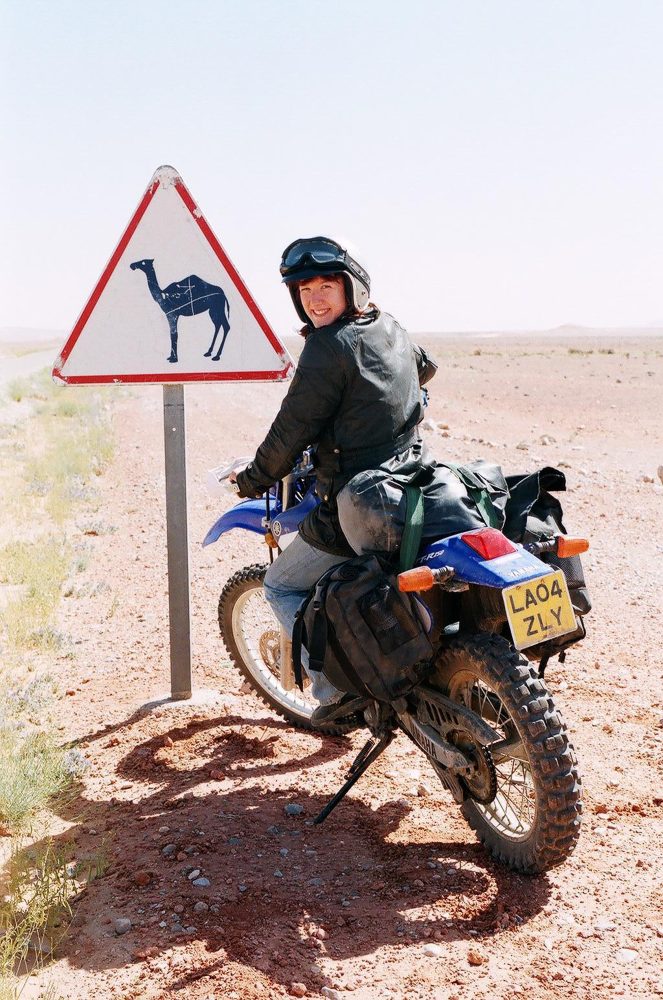
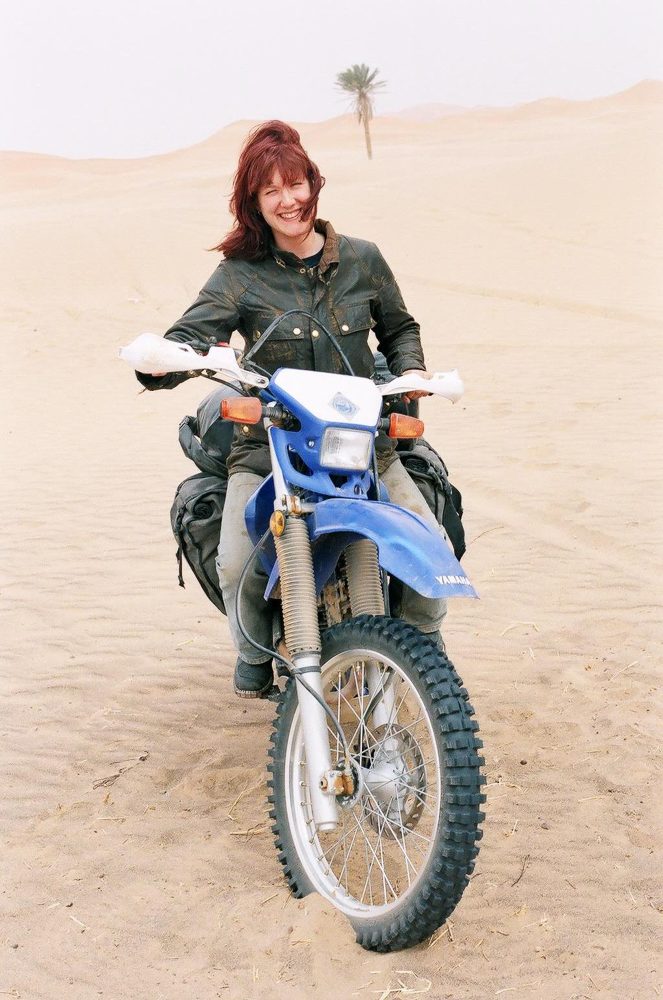
When and why did you decide to write Lois on the Loose?
It was while I was on the road, on my first big overland journey from Alaska to Argentina in 2003. I didn’t set off with the intention of writing a book, but I got put in touch with a literary agent after writing some trip reports from the road, and it all went from there.
What was the writing process like for Revolutionary Ride?
I included much more historical, social, and political elements than in my other books, weaving these into my own story of riding around Iran and describing how my experiences were affected by these elements. My research took place before, during, and after the trip. The heavy reading and fact-checking were mostly afterward when writing the book. But, of course, while I was in Iran, traveling and thinking about the book—everything was research. And I always do some reading before I leave, but not much, as I like to go in fresh without too many preconceptions.
How do you write when you’re on the road?
I always write a longhand diary every night, no matter what. It doesn’t matter how tired, cold, or wet I am; I always get something down. Because you think you’ll remember everything, and you don’t. I don’t write with much thought about the craft, just a basic overview of what happened that day, plus any important details, observations, conversations I had, funny occurrences—the little things. Then when I get home, it’s enough to trigger my memory and turn it into something readable.
How did your writing process change by the time you wrote your third book?
The process of note-taking on the road hasn’t changed much. But I have become better at turning it into a book. I read through my notebooks and plan out each chapter, noting how it will end, sometimes to create tension or at a significant moment to keep the reader turning the page. I take the same approach as a fiction writer with regard to narrative and story arc. It is very easy for travel books to become a list of ‘And then, and then….’ There needs to be some thought put into the bigger picture.
What lessons did you learn from your first book that changed how you approached the publication or writing of your subsequent books?
I think each book evolved into its own identity without me planning it that way too consciously. The first one, Lois on the Loose, is almost like a youthful explosion of not giving a damn, hitting the road, and seeing what happens. Red Tape and White Knuckles is a more hardcore adventure story. And then the third one, Revolutionary Ride, is my more grown-up book, I suppose. It wasn’t necessarily planned that way, but when I got to Iran and realized just how [messed up] our relationship [British and Iran] is, and how Iran and Iranians are so misrepresented in the West, I couldn’t ignore that aspect. I knew I couldn’t just write another straight-ahead motorcycle or adventure book.
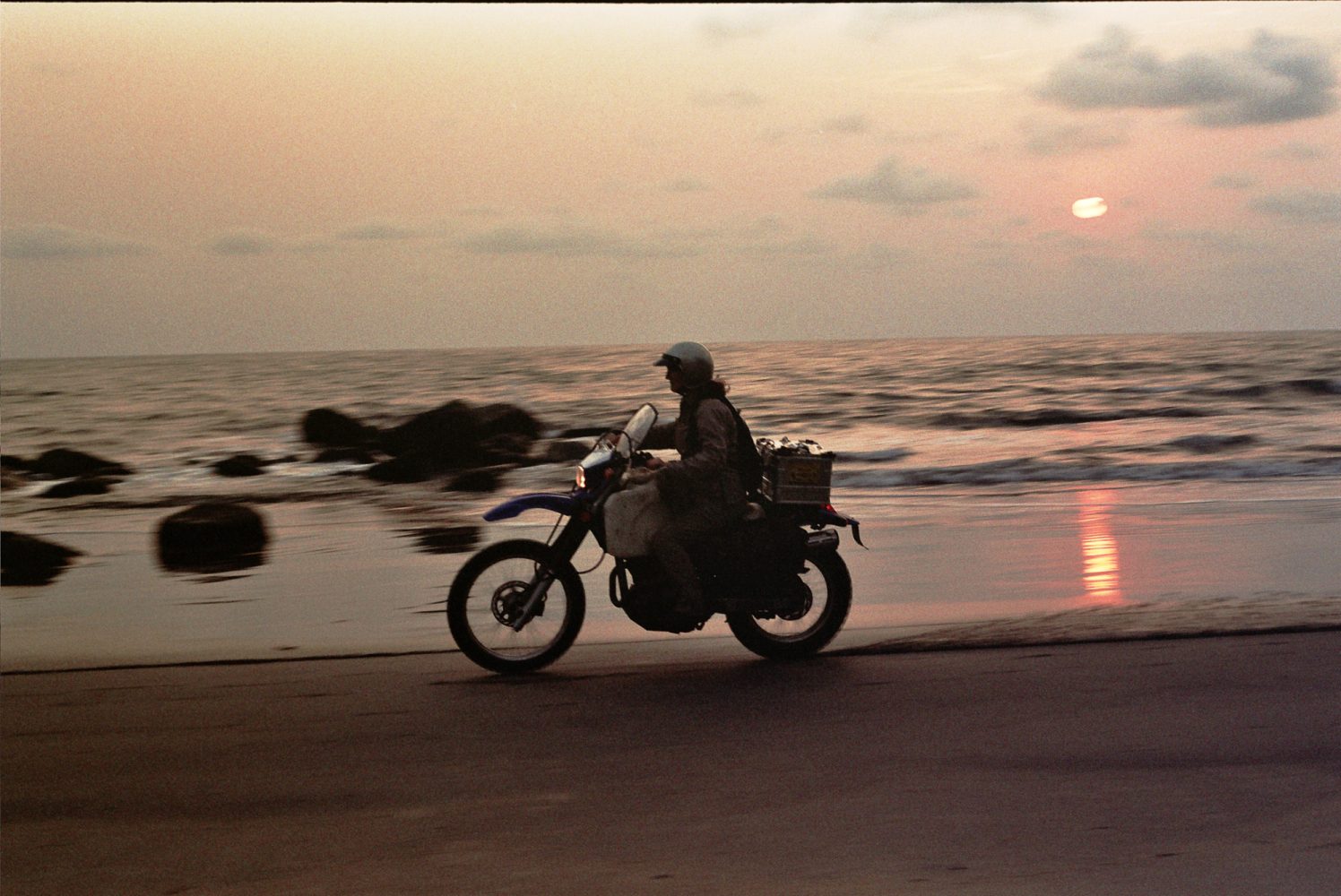
Any advice for those who want to hone their writing skills?
Keep writing all the time, even if it’s just a few sentences a day. And read a lot. Write about anything, and don’t be afraid to edit yourself; be brutal with the red pen. Study books about the craft of writing and analyze your favorite authors—what do you like about them, how are they doing it? I teach non-fiction writing courses, and a common problem I see is that people do not give any thought to the structure of their pieces. They want to dive right in with a beautiful description or an exciting action scene but with no sense of where it’s going and how it ties in with the bigger picture. So first off, before you write the first word, ask yourself, What am I trying to say? What is the point of this article/book/short story? Once you have established that, make every word work toward that point.
Any advice on pitching articles and getting published?
Be thick-skinned. Don’t let rejection, or worse, being ignored, put you off. But do put the time into researching the publication and the editor—it’s easy to do these days online. Look at what kind of work they publish, and in your pitch, explain why you are the person to write the story.
Find a niche for yourself. What makes you different from everyone else who is telling similar stories? Find a way to stand out and find your voice.
In a way, it’s harder nowadays because so much of the world has been explored, and so much has been written. Put the work into creating a really great story; make your reader feel something. That is what we all want out of a book, ultimately.
…
What’s next for Lois? Currently writing a novel set in 1950’s Iran and 1970’s Los Angeles, she’s delving into the world of fiction. “I guess you could describe it as a political/romantic thriller,” she says.
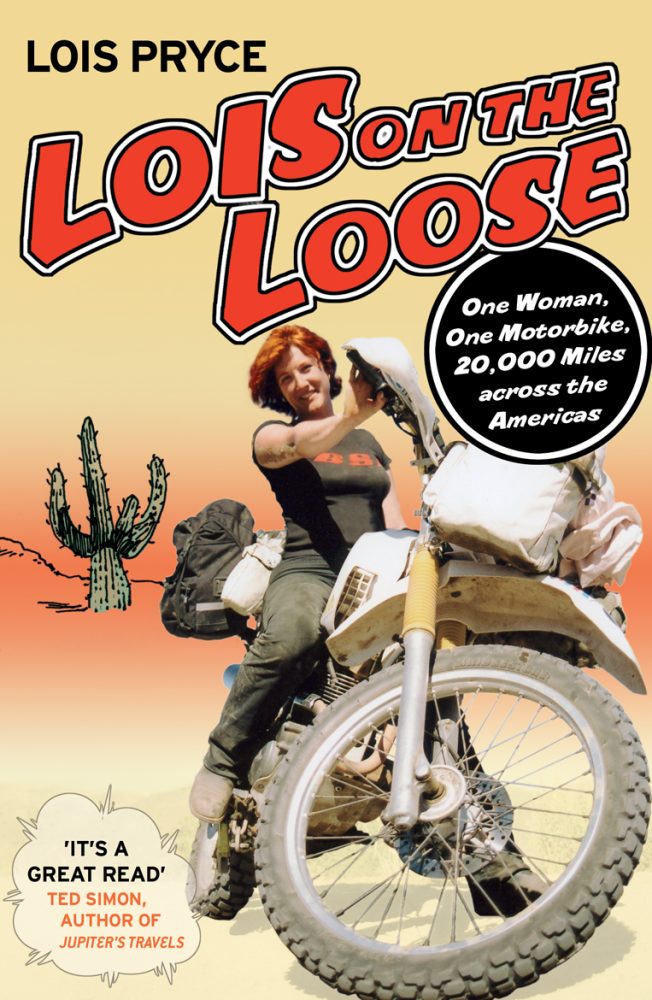
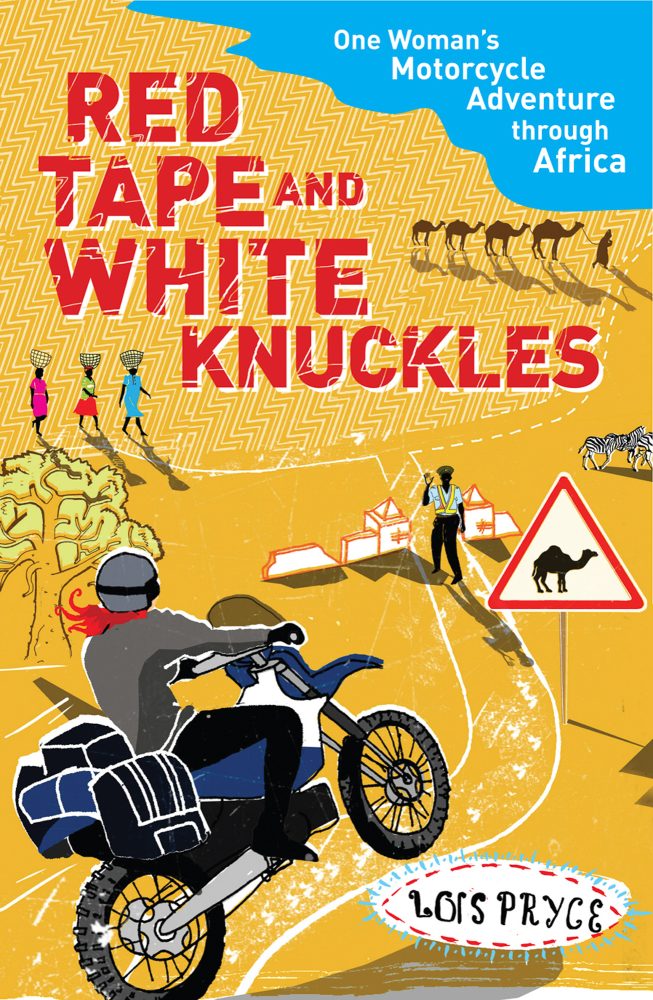
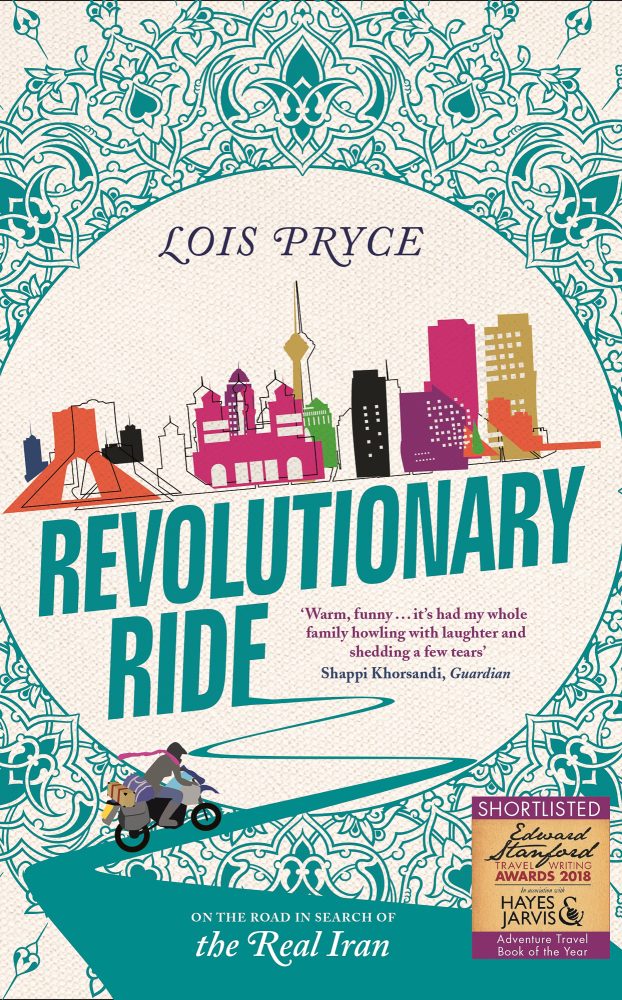
Our No Compromise Clause: We carefully screen all contributors to ensure they are independent and impartial. We never have and never will accept advertorial, and we do not allow advertising to influence our product or destination reviews.


